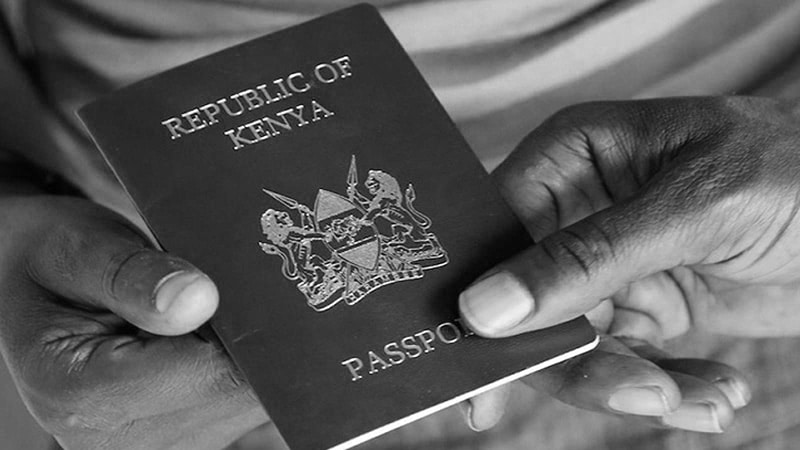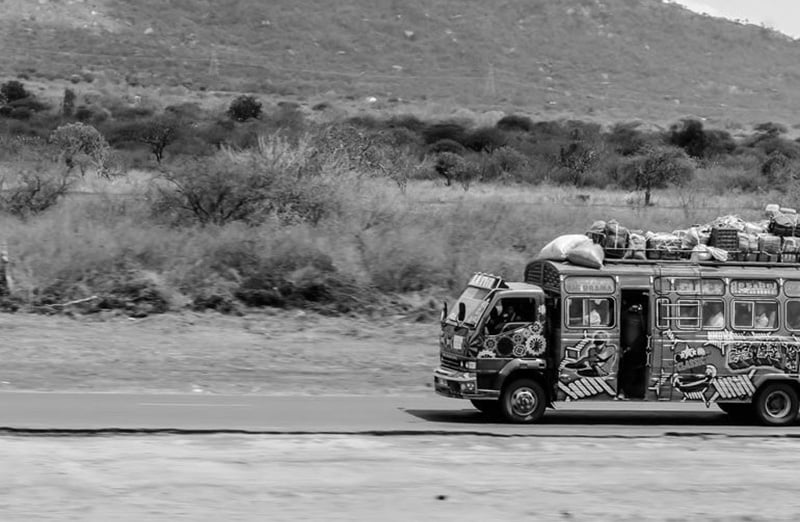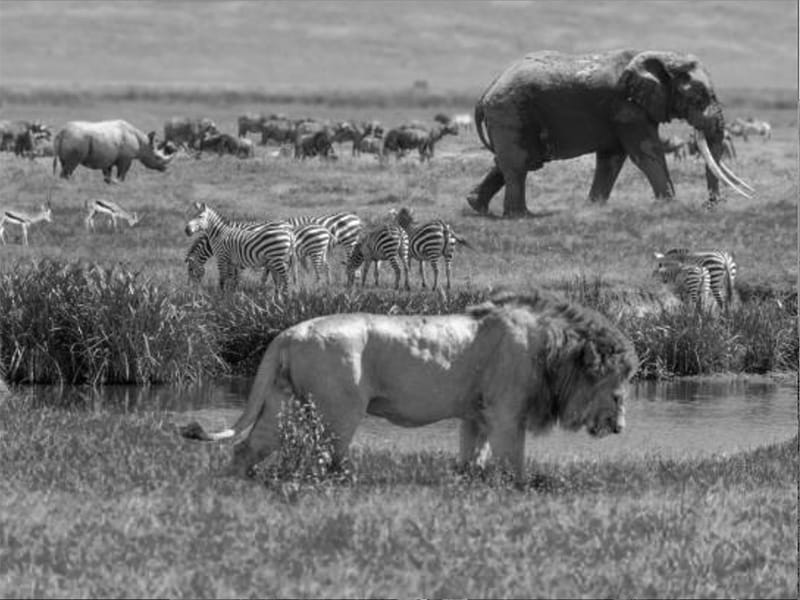Traveling from Kenya to Tanzania: Essential Requirements and Tips for a Smooth Entry
Traveling from Kenya to Tanzania is an exciting adventure that offers a unique glimpse into the rich culture and stunning landscapes of East Africa. However, to ensure a smooth entry into the neighboring country, there are essential requirements to enter Tanzania from Kenya and tips that you need to be aware of. In this article, we will delve into the necessary documentation, visa requirements, and other crucial preparations to make your journey hassle-free.
When crossing the border from Kenya to Tanzania, it is important to have a valid passport with at least six months’ validity remaining. Additionally, obtaining a Tanzanian visa is a vital step in your travel preparations. We will guide you through the different visa options and provide tips on how to secure one smoothly.
Furthermore, it is important to be aware of the health and safety precautions when traveling within the region. We will provide valuable information on recommended vaccinations, travel insurance, and general safety tips to ensure a secure and enjoyable trip.
Whether planning a safari adventure, trekking up Mount Kilimanjaro, or simply exploring the vibrant cities, this article will equip you with the essential knowledge to navigate the requirements and enjoy a seamless journey from Kenya to Tanzania.
Visa Requirements for Kenyan Travelers
When traveling from Kenya to Tanzania, it is essential to understand the visa requirements to enter Tanzania from Kenya to avoid any inconvenience at the border. Tanzanian visa requirements vary depending on the purpose and duration of your visit.
For short visits, Kenyan travelers can obtain a visa on arrival at various entry points, including airports and border crossings. It is advisable to carry the correct amount of cash in US dollars to pay for the visa fee, as credit cards may not always be accepted. The visa on arrival is typically valid for multiple entries and allows a stay of up to 90 days.
If you prefer to obtain a visa in advance, you can apply at the Tanzanian Embassy or Consulate in Kenya. This option is recommended for travelers who want to avoid potential queues and ensure a smooth entry into the country.
To apply for a Tanzanian visa, you will need to submit a completed visa application form, a valid passport with at least six months’ validity, a recent passport-sized photograph, and the visa fee. It is advisable to check the Tanzanian Embassy’s website for the most up-to-date information and any additional requirements.
Passport and Other Travel Document Requirements

Among the list of requirements to enter Tanzania from Kenya is having a valid passport with at least six months’ validity remaining. Ensure that your passport is in good condition and does not have any damages, as this may cause issues at the border.
It is also recommended to make a copy of your passport and keep it in a separate location, such as your hotel room safe or digital storage. This copy can serve as a backup in case your passport gets lost or stolen during your trip.
In addition to a valid passport, it is essential to carry other travel documents, such as your flight itinerary, hotel reservation confirmations, and proof of sufficient funds for your stay in Tanzania. These documents may be requested by immigration officials upon entry, so it is important to have them readily available.
Health and Vaccination Requirements
Having a vaccination card or proof of being vaccinated is one of the requirements to enter Tanzania from Kenya. The country is known for its diverse wildlife and natural beauty, but it is also home to certain health risks that travelers should be prepared for.
It is recommended to consult with a healthcare professional or a travel clinic to receive up-to-date information on the required and recommended vaccinations for Tanzania. Common vaccinations include hepatitis A and B, typhoid, yellow fever, and meningitis. Depending on your travel itinerary and personal health history, additional vaccinations may be recommended.
In addition to vaccinations, it is crucial to take precautions to prevent mosquito-borne diseases, such as malaria. It is advisable to use insect repellent, wear long-sleeved clothing, and sleep under mosquito nets, especially if you are visiting areas with a high risk of malaria transmission.
Travel insurance is also highly recommended when traveling to Tanzania. It provides coverage for medical emergencies, trip cancellations, and lost or stolen belongings. Make sure to carefully review the policy and ensure that it covers your specific needs and activities during your trip.
Currency Exchange and Banking Facilities

When traveling from Kenya to Tanzania, it is essential to have local currency for your expenses. The official currency of Tanzania is the Tanzanian Shilling (TZS). While some establishments may accept US dollars or credit cards, it is advisable to have local currency for smaller purchases and transactions.
Currency exchange facilities can be found at major airports, banks, and authorized exchange bureaus. It is recommended to compare exchange rates and fees before making any transactions to ensure you get the best value for your money.
ATMs are also widely available in major cities and tourist areas, allowing you to withdraw cash in the local currency. However, it is advisable to inform your bank about your travel plans to avoid any issues with your card being blocked due to suspicious activity.
Transportation Options from Kenya to Tanzania
There are several transportation options available when traveling from Kenya to Tanzania. The most common and convenient method is by air, with regular flights connecting major cities in both countries. Airlines such as Kenya Airways, Precision Air, and Air Tanzania offer domestic and international flights between Kenya and Tanzania.
If you prefer a more adventurous journey, you can also consider traveling by road. There are several border crossings between Kenya and Tanzania, including the Namanga border crossing, which is the most popular route for travelers. It is advisable to check the latest travel advisories and road conditions before embarking on a road trip.
For those seeking a more scenic and leisurely journey, you can also opt for a train ride from Nairobi, Kenya to Dar es Salaam, Tanzania. The Tanzania-Zambia Railway Authority (TAZARA) operates a twice-weekly passenger train service that allows you to enjoy the breathtaking landscapes of both countries.
Safety Tips for Traveling in Tanzania

Tanzania is generally a safe country for travelers, but it is always important to take precautions to ensure your safety and well-being. Here are some essential safety tips to keep in mind:
- Research and respect local customs and traditions. Familiarize yourself with the local culture, dress modestly, and be mindful of any religious or cultural practices.
- Avoid displaying wealth or valuable possessions in public. Keep your belongings secure and be cautious of pickpockets in crowded areas.
- Use reliable transportation services, such as registered taxis or reputable car rental companies. Avoid hitchhiking or accepting rides from strangers.
- Be cautious when using ATMs or carrying cash. Keep your PIN secure and be aware of your surroundings when making transactions.
- Stay informed about the current security situation in the areas you plan to visit. Monitor travel advisories and follow any instructions or warnings from local authorities.
By following these safety tips and being aware of your surroundings, you can have a safe and enjoyable trip in Tanzania.
Must-Visit Destinations in Tanzania

Tanzania is a country rich in natural beauty and diverse wildlife, offering a wide range of attractions for travelers. Here are some must-visit destinations that should be on your itinerary:
- Serengeti National Park: Known for its annual wildebeest migration, the Serengeti National Park is a wildlife enthusiast’s paradise. It is home to a wide variety of animals, including lions, elephants, zebras, and giraffes.
- Mount Kilimanjaro: For adventure seekers, a trek up Mount Kilimanjaro is a once-in-a-lifetime experience. Standing at 5,895 meters (19,341 feet), it is the highest peak in Africa and offers breathtaking views of the surrounding landscapes.
- Zanzibar: This tropical paradise is famous for its pristine beaches, crystal-clear waters, and vibrant culture. Explore the historic Stone Town, relax on the white sand beaches, or go snorkeling and diving in the coral reefs.
- Ngorongoro Conservation Area: Home to the Ngorongoro Crater, this UNESCO World Heritage site is a natural wonder. The crater is the largest intact volcanic caldera in the world and is teeming with wildlife, including lions, elephants, and rhinos.
- Tarangire National Park: Known for its large elephant population, Tarangire National Park offers incredible game viewing opportunities. The park is also home to various bird species and baobab trees, creating a unique and picturesque landscape.
Cultural and Etiquette Tips for Travelers
When visiting Tanzania, it is important to respect the local culture and customs. Here are some cultural and etiquette tips to help you navigate the social norms:
- Greeting: In Tanzania, greetings are an important part of the culture. It is customary to greet people with a handshake and a warm smile. Use the appropriate greeting based on the time of day, such as “Jambo” (hello) during the day and “Mambo” (what’s up) in the evening.
- Dress Code: Tanzania is a conservative country, and it is advisable to dress modestly, especially when visiting religious sites or rural areas. Women should avoid wearing revealing clothing, and men should avoid walking around shirtless.
- Photography: Always ask for permission before taking photographs of people, especially in rural areas or when photographing religious sites. It is respectful to show the locals the photo you have taken and ask if they are comfortable with it.
- Food and Eating: When invited into someone’s home for a meal, it is customary to wash your hands before eating. Use your right hand for eating, as the left hand is considered unclean. It is polite to try a bit of everything that is offered to you.
- Tipping: Tipping is not mandatory in Tanzania, but it is appreciated for good service. It is customary to tip around 10% of the bill at restaurants and to tip safari guides and hotel staff for exceptional service.
By following these cultural and etiquette tips, you can show respect for the local customs and create positive interactions with the Tanzanian people.
Traveling from Kenya to Tanzania offers a wealth of exciting experiences and unforgettable memories. You can enjoy a smooth entry into Tanzania by ensuring you have the necessary requirements to enter Tanzania from Kenya, which include documentation, understanding the visa requirements, and taking appropriate health and safety precautions.
From the stunning wildlife of the Serengeti to the majestic Mount Kilimanjaro and the idyllic beaches of Zanzibar, Tanzania has something to offer every traveler. By respecting the local culture and customs, you can further enrich your journey and create meaningful connections with the Tanzanian people.
So, pack your bags, prepare your travel essentials, and embark on an adventure that will take you from the vibrant streets of Kenya to the enchanting landscapes of Tanzania. Your East African adventure awaits!
For more articles related to Tanzania Immigration, click here!


































